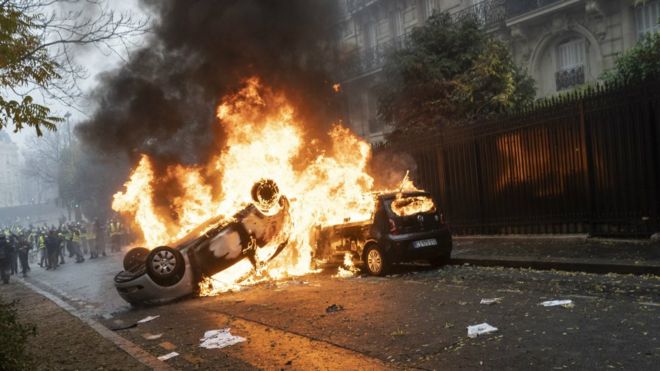 INPHO
INPHO
Tourist sites in Paris are to close on Saturday amid fears of further street violence from "yellow vest" anti-government protests.
Across France, 89,000 police officers will be on duty and armoured vehicles will be deployed in the capital, Prime Minister Edouard Philippe announced.
Police have urged shops and restaurants on Paris's Champs-Elysees to shut and some museums will also be closed.
Paris endured some of the worst rioting in decades last Saturday.
The government has said it is scrapping unpopular fuel tax increases in its budget - the original trigger for the protests.
But broader discontent with the government has spread and protests have erupted over other issues.
What has the government said?
An official with the interior ministry told AFP news agency authorities were braced for "significant violence" on Saturday, with activists from both the far right and far left planning to converge on the capital.
In an interview with TV channel TF1, Mr Philippe said 8,000 police would be deployed in Paris as well as a dozen armoured vehicles.
- Who are the 'gilets jaunes'?
- Ball in Macron's court after violent protests
- Will you be affected by the planned closures? Email haveyoursay@bbc.co.uk
He repeated an appeal for calm but added: "We are facing people who are not here to protest, but to smash and we want to have the means to not give them a free rein."
Earlier, Mr Philippe suggested further concessions to protesters, telling the Senate that the government was open to new measures to help the lowest-paid workers.
How will Paris be affected?
The operator of the Eiffel Tower said the threat of violent protests on Saturday made it impossible to ensure "adequate security conditions".
City authorities say they are stepping up protection for famous landmarks after the Arc de Triomphe was damaged last week.
Culture Minister Franck Riester said the Louvre and Orsay museums, opera houses and the Grand Palais complex were among sites that would be closed.
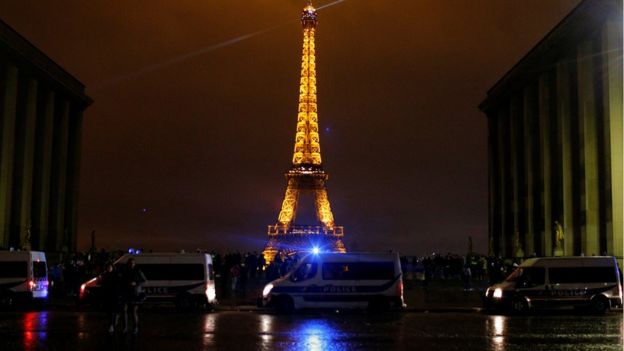 REUTERS
REUTERS
"We cannot take the risk when we know the threat," he told RTL radio.
Police have asked stores and restaurants along the Champs-Elysees and other major shopping streets to stay closed and to remove any outdoor items such as tables and chairs.
A series of football matches have also been postponed on Saturday. They include those between Paris and Montpellier, Monaco and Nice, Toulouse and Lyon, and Saint-Etienne and Marseille.
What other protests have there been?
On Thursday young people took to the streets, protesting over education reforms.
More than 140 people were arrested when a protest outside a school in Mantes-la-Jolie to the west of Paris ended in clashes with police. Pictures of the arrests, in which the students are made to kneel and put their hands behind their heads, sparked outrage on social media.
"Now there's a well-behaved class," a police office is heard saying.
The town's police chief told Le Monde newspaper that those arrested were suspected of taking part in an "armed gathering", adding that officers had wanted to break up a situation that was getting "out-of-control."
Dozens of other schools were blockaded in cities including Marseille, Nantes and Paris. Students have been angered by President Emmanuel Macron's plans to change the end-of-school exam, known as the baccalaureate, which is required for entrance to university.
Critics fear the reforms will limit opportunity and breed inequality.
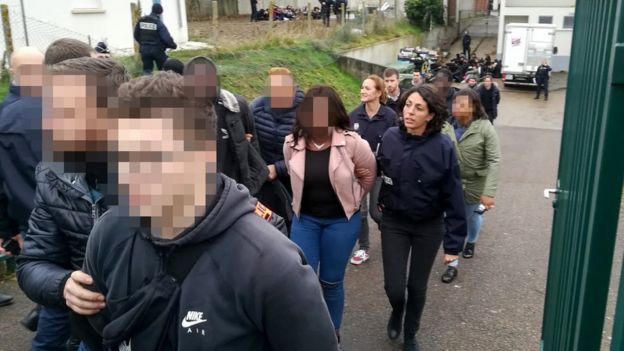 AFP
AFPWho are the protesters?
The "gilets jaunes" protesters, so-called because they have taken to the streets wearing the high-visibility yellow clothing that is required to be carried in every vehicle by French law, initially complained at a sharp increase in diesel taxes.
Mr Macron said his motivation for the increase was environmental, but protesters accused him of being out of touch.
The government later scrapped the plan but the yellow vest protesters were not placated. Last week, the movement - despite a lack of central leadership - issued more than 40 demands to government.
Among them were a minimum pension, widespread changes to the tax system, and a reduction in the retirement age.
The protest movement has gained momentum via social media, encompassing a whole range of participants from the anarchist far left to the nationalist far right, and moderates in between.
Europe
Tory rebels dismiss Brexit vote compromise
- 7 December 2018
- UK Politics
Rescue ship Aquarius ends migrant missions
- 7 December 2018
- Europe
Girl's 'hijacked' invite sparks riot fears
- 6 December 2018
- Europe



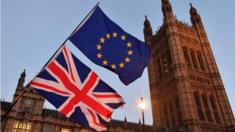

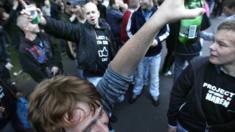
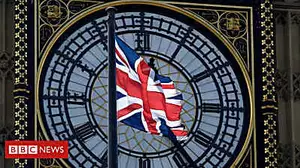
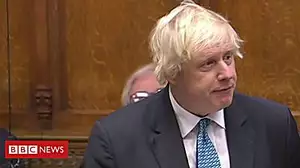
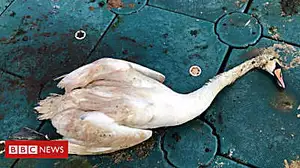
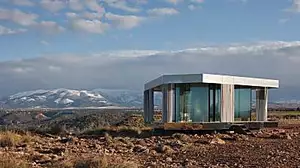

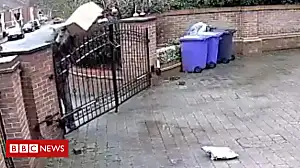

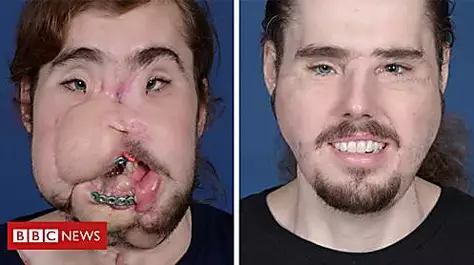
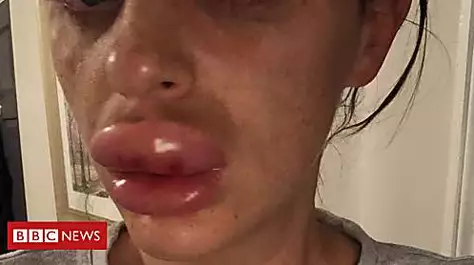
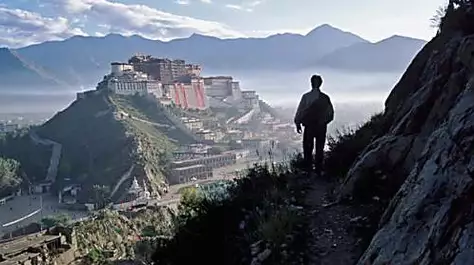
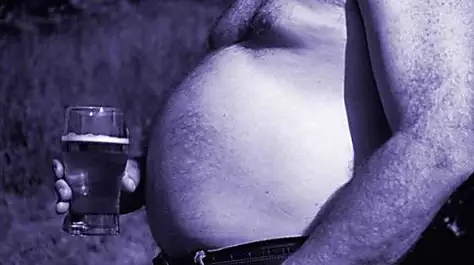





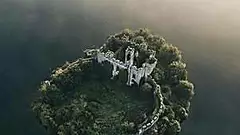

No comments:
Post a Comment